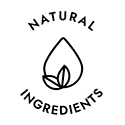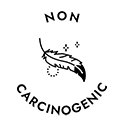Emerging Trends in the Cosmetics Industry: Haircare and Skincare in the Pakistani Market


Overview of the Cosmetics Market in Pakistan
The cosmetics industry in Pakistan has experienced significant expansion in recent years, particularly within the haircare and skincare segments. According to market research, the overall cosmetics market is expected to witness remarkable growth, projected to reach a value exceeding USD 1.1 billion by 2025. This surge is driven by an increasing awareness of personal grooming, aided by the rise of social media influencers and beauty bloggers who promote various products and trends.
Within the haircare segment, shampoos, conditioners, and treatment products account for a substantial portion of sales. Pakistani consumers display a preference for products that cater to local climatic conditions and hair types, often prioritizing formulations that address common issues such as dryness and frizz. The demand for natural and organic ingredients is also on the rise, reflecting a broader global trend towards eco-consciousness. Brands that incorporate herbal elements in their formulations, such as henna and aloe vera, are gaining traction among consumers looking for effective yet safe solutions.
In skincare, the market is equally vibrant, with consumers increasingly investing in products that offer multifunctional benefits, such as moisturizing, sun protection, and anti-aging properties. The urban population, particularly young women, demonstrates a keen interest in premium skincare products, revealing a shift towards a more sophisticated understanding of beauty. Cultural influences play a crucial role in shaping beauty standards in Pakistan, with many individuals aspiring to achieve a fair and flawless complexion, further boosting the demand for whitening creams and serums. However, the rising awareness about the potential harms associated with harsh chemicals has resulted in consumers gravitating towards products with clinically proven efficacy and natural ingredients.
The interplay of these factors encapsulates the diverse and dynamic nature of the cosmetics market in Pakistan, where traditional values meet modern influences, thereby contributing to an evolving landscape that caters to the diverse beauty aspirations of its populace.
Key Trends in Haircare Products
The haircare segment in the Pakistani cosmetics market is witnessing a robust evolution, driven by a blend of consumer preferences and a surge in product innovations. Recent trends highlight a marked shift towards natural and organic ingredients, as consumers become increasingly aware of the benefits of sustainability and wellness. This shift is reflected in the growing popularity of shampoos and conditioners that contain herbal extracts, oils, and other natural formulations. Brands are actively expanding their product lines to include sulfate-free options, catering to those who prioritize gentle and effective cleansing solutions.
In addition to organic formulations, there is a significant demand for specialized hair treatments in the Pakistani market. These include products designed for specific concerns, such as hair fall, dandruff, and damaged hair repair. The emergence of niche products, such as leave-in conditioners and hair masks infused with local botanicals, showcases the blending of traditional remedies with modern science. Moreover, as awareness surrounding hair health escalates, treatments enriched with vitamins and antioxidants are gaining traction among health-conscious consumers.
The introduction of international brands into the Pakistani haircare market is also noteworthy. As global players establish their presence, they bring diverse product offerings that resonate with local consumers. This influx not only promotes competitiveness but also encourages local brands to innovate and enhance their value propositions. The influence of localized branding strategies, effective marketing campaigns, and packaging tailored to Pakistani aesthetics cannot be understated, as they play a vital role in shaping consumer choices.
Furthermore, unique packaging solutions, such as eco-friendly materials and eye-catching designs, have become essential in attracting the attention of Pakistani consumers, who often seek products that align with personal care and environmental values. Overall, the haircare segment in Pakistan is evolving rapidly, with consumer preferences shifting towards more personalized, sustainable, and effective solutions.
Skincare Innovations and Consumer Preferences
The skincare industry in Pakistan has witnessed notable transformations, largely driven by the growing awareness of skincare routines inspired by global trends. Consumers in Pakistan are increasingly recognizing the importance of specialized care for their skin, leading to a surge in the adoption of diverse skincare products. Innovations such as serums, face masks, and sunscreens have gained traction, specifically designed to meet the unique requirements of local skin types and conditions.
Serums, characterized by their concentrated formulations, have become a staple in many skincare regimes. These products target specific skin concerns, ranging from hydration to anti-aging solutions. Similarly, face masks have emerged as popular choices for both self-care and enhanced efficacy of skincare routines. The incorporation of local ingredients into these masks not only appeals to consumers but also showcases a blend of tradition and modern skincare practices.
Sunscreen, often regarded as a vital component of any skincare regimen, is experiencing increased demand as awareness about sun protection rises. Given Pakistan's sunny climate, products that offer broad-spectrum protection are becoming essential for consumers striving to maintain their skin health. This has prompted brands to innovate formulations that are lightweight, easy to apply, and tailored to the skin types prevalent in the region.
Consumer preferences are also shifting towards brand loyalty influenced by the growing importance of ethical considerations in skincare choices. Many consumers exhibit a clear inclination towards organic products, often favoring natural ingredients over synthetic alternatives. This trend is reshaping the market landscape, as brands strive to offer cleaner, more transparent formulations that resonate with eco-conscious buyers. Furthermore, the rise of educational content regarding skincare has empowered consumers, enabling them to make informed decisions based on their specific needs. As a result, the intersection of innovation, consumer preferences, and informational resources continues to drive the evolution of the skincare industry in Pakistan.
Retail Trends and Distribution Channels
The cosmetics industry in Pakistan has undergone significant transformation over recent years, driven largely by shifts in consumer behavior and advancements in technology. The rise of e-commerce platforms has revolutionized how brands connect with consumers, providing an avenue for an increasingly digital-savvy population. Pakistani consumers are now more inclined to shop online for cosmetics and skincare products, capitalizing on the convenience, variety, and often competitive pricing available in the digital marketplace.
Major e-commerce platforms, such as Daraz and Jumia, have emerged as key players in distribution, allowing a plethora of cosmetic brands to reach customers beyond traditional retail confines. These platforms often offer promotional deals, customer reviews, and detailed product descriptions that cater to the modern shopper’s need for informed purchasing decisions. Furthermore, brands are increasingly employing social media channels as integral components of their marketing strategies. Platforms like Instagram and Facebook not only serve as effective advertising mediums but also as vital spaces for engaging consumers and building brand loyalty.
In contrast, traditional retail setups continue to play a pivotal role in the distribution landscape, particularly among demographics that prefer the tactile experience of testing products before purchase. Beauty outlets and department stores remain popular, as shoppers often seek expert advice and personalized service that online platforms might not provide. However, the pandemic has accelerated a shift toward online shopping, compelling many retailers to enhance their digital presence and adapt to new consumer preferences.
Social media influencers and beauty bloggers have further augmented retail trends, serving as crucial voices in product promotion. These individuals not only showcase products but also create an organic, relatable connection with their audiences. Their endorsements can significantly sway purchasing decisions, highlighting the importance of influencer marketing in today's cosmetic retail dynamics. As such, brands must continuously evolve their distribution strategies to align with the changing landscape of consumer behavior and preferences in Pakistan’s cosmetics market.







